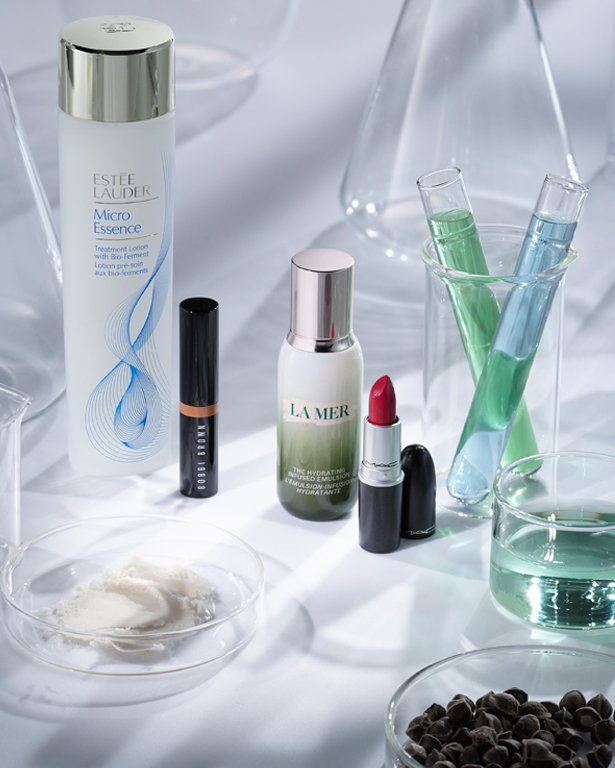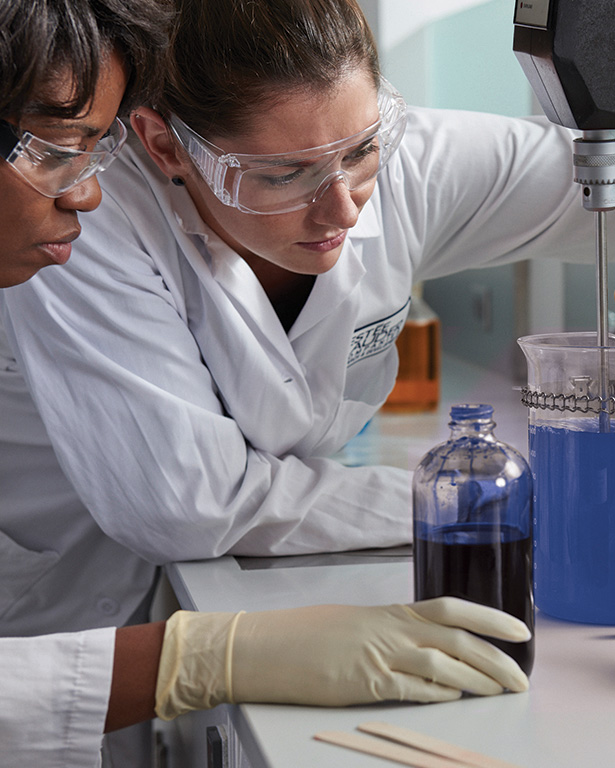Hong Kong
Nadine Pernodet on ELC’s Cutting-Edge Skin Care Science
Dr. Pernodet, SVP, Bioscience shares ELC’s holistic views of aging and the beauty technologies that can address signs of aging…
Company Feature, Aug 24, 2023
At The Estée Lauder Companies (ELC), Nadine Pernodet, PhD, Senior Vice President leads the company’s Global Bioscience Group, including Skin Biology, Skin Physiology, Professional Beauty, Fermentation, and Bioactives. In the Bioscience Group, her teams develop new methods to research, identify, and support new technologies. Her team continues to discover new scientific insights that drive a pipeline of efficacious active ingredients to deliver high benefit to skin, new claims, new concepts, and new scientific communications and credentialing for successful global skin care launches such as Estée Lauder Advanced Night Repair, Perfectionist Pro-Franchise, Supreme, and Re-Nutriv Diamond.
As an externally recognized expert in skin biology, Dr. Pernodet’s unique approach to the science of beauty is to combine her extensive background in biophysics and biology to better understand skin bionetworks and approach research through an interdisciplinary lens. She is also the lead scientist for the Estée Lauder brand and serves as their Scientific Advisor, Innovator, and Spokesperson.
Read on to learn more from Dr. Pernodet about ELC’s cutting-edge skin care science in the service of skin and performance ingredients to fight visible aging and counter environmental damage.
- Why ELC studies epigenetics: To begin, Dr. Pernodet posed the question of why ELC might be interested in studying epigenetics, and the influence of our environment and lifestyle on our skin. She shared that the scientific community recognizes that “75% of the aging process comes directly from epigenetics,” and by better understanding epigenetic signals, we’re able to significantly impact skin aging in a positive way.
- What influences the way skin cells behave: Dr. Pernodet explained the role our microenvironment, such as day and night cycles, pollution, cold versus heat, and sun exposure has on skin cells, but she also noted the impact of our modern lifestyles. “Stress, lack of sleep, extending ‘daytime’ into nighttime with exposure to light, traveling, and more all impact the way your skin cells behave.”
- The different types of technologies ELC develops to impact skin aging: “Once we understand how all of these factors are going to impact skin cells either negatively or positively, we have to develop targeted technologies to help skin look its best. And here, our inspiration comes from a wide range of molecules, including both synthetic ingredients and natural ferments. Why? Because our priorities are performance and safety,” she shared. She then went on to explain how synthetic materials can mimic natural skin molecules, why observing and learning from nature is critical to developing skin technologies, and how our scientists use ferments as “factories” to produce highly potent natural molecules.
- Why studying circadian rhythm is important to the study of skin care: Dr. Pernodet explained how skin cells have their own circadian rhythm. During the daytime, skin cells naturally focus on protection, and at night, they naturally focus on repair. She and other ELC scientists study the impact of the desynchronization of skin’s circadian rhythm and the factors that cause it, such as aging, pollution, exposure to light at nighttime and more.
- How ELC uses fermentation to create powerful skin ingredients: Finally, Dr. Pernodet shared an example of building on ELC’s 30+ years of fermentation experience with ELC’s creation of a coconut water ferment to produce hyaluronic acid (HA), a critical molecule in skin moisture. Dr. Pernodet showed how this proprietary coconut water ferment increased natural HA production in skin cells by more than 60% versus the unfermented coconut water ingredient, which increased HA by less than 20%.
To close, Dr. Pernodet reiterated the importance of epigenetics to understand how key skin mechanisms impact the skin. She also noted the importance of using those understandings to develop high-quality and high-performance technologies to address those mechanisms as skin ages or is impacted by the microenvironment and our lifestyles.
Dr. Pernodet emphasized the importance of nature in helping scientists understand skin in order to be “at the service of the skin, to have skin that is always healthy.”


